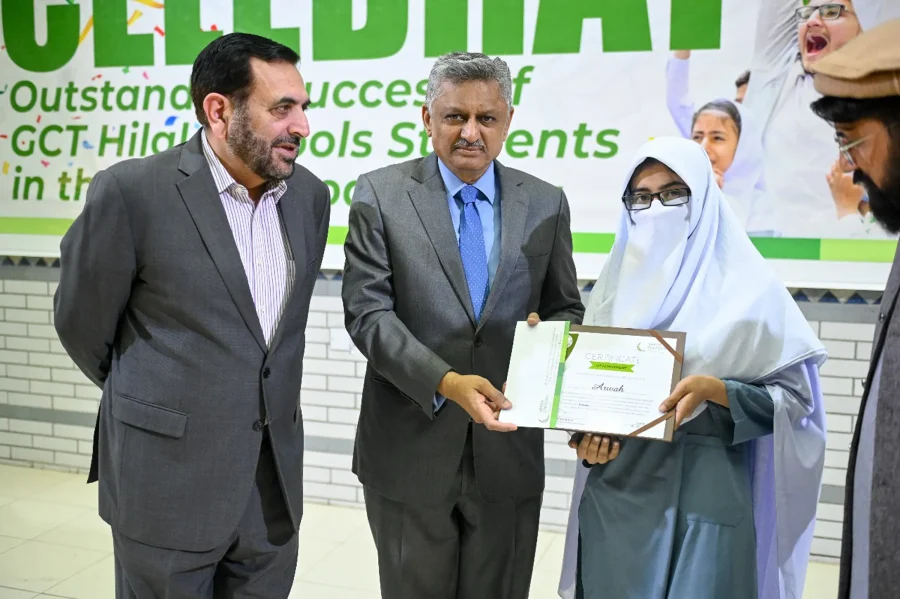The Sindh government has to join hands with the sincere education sector non-profits to provide quality schooling facilities to children from rural and underprivileged parts of the province in the form of public-private partnerships.Caretaker Sindh Revenue, Industries, and Commerce Minister, Younus Dagha, stated this, while speaking as the chief guest at a ceremony held here to honour students enrolled in the charitable schools of non-profit Green Crescent Trust (GCT) who recently passed the matriculation examinations with distinction.
Caretaker Sindh Revenue Minister appreciated that the GCT in the past 29 years had established 166 charitable schools having an enrolment of over 31, 799 students from the deprived families in Sindh.”I would like to greet the leadership, donors, and supporters of the Green Crescent Trust for establishing such a vast schooling network whose enrolment roughly equals to serving the educational needs of a medium-sized city,” said Dagha. He said the Sindh government should learn from the exceptional success of the committed charities in the education sector like the GCT to effectively overcome the shortcomings of the state-run schooling system. He said the partnership to be forged between the Sindh government and devoted education sector charities would go a long way to provide quality schooling facilities to every child in the remote and rural parts of the province.
The Interim Sindh Revenue Minister said the government spent around Rs 3,000 to Rs 3,500 per month on every student enrolled in its schooling system but even then it couldn’t match the quality of education imparted by committed non-profits like the GCT whose per-student spending is much less.
He advised non-governmental organisations in the education sector to impart vocational training to their students besides the provision of IT learning facilities to help the government overcome the shortage of skilled workforce required for the advancement of Pakistan.Dagha while appreciating the hard work by the students who were honoured on the occasion, advised them to stay fully focused on getting further education to brighten the future of their families and become capable of playing an effective role in the progress and development of Pakistan. He assured the GCT office-bearers that he would sit with them to ponder over the issues of the education sector to jointly find the way forward for the uplift of the government schooling system.
Earlier speaking as the Chief Guest of the previous session, Caretaker Sindh Law Minister, Barrister, Muhammad Omer Soomro, said the shining examples of committed charities like the GCT gave much encouragement to the government to uplift its schooling network.
He advised the students in the audience to continue with their hard work in their studies to emerge as loyal and committed citizens who could meaningfully contribute to the development of Pakistan.Also speaking as the guest of honour, Additional Chief Secretary of Sindh Home Department, Muhammad Iqbal Memon, praised that a large number of students from underprivileged families had secured distinction upon completion of their school education.In his welcome remarks, GCT CEO, Zahid Saeed, said it was high time that sincere NGOs and the Sindh government joined hands and worked together to enrol around eight million out-of-school children in the province aged between four and 16.
He lamented that despite the expenditure of hundreds of billions of rupees annually the provincial governments couldn’t provide basic academic and infrastructure facilities at its schools. He said the concerned NGOs in the education sector and government by forging partnerships could jointly work to overcome the serious issues of the state-run schools.
On the occasion, the chief guests and guests of honour distributed commendation certificates among 112 students enrolled in the GCT schools who passed the SSC examinations with distinction. The students also spoke and expressed gratitude to concerned philanthropists and donors for supporting quality schooling facilities for children from deprived families in Sindh. They also shared with the audience their goals in upcoming practical life after securing a higher education.







